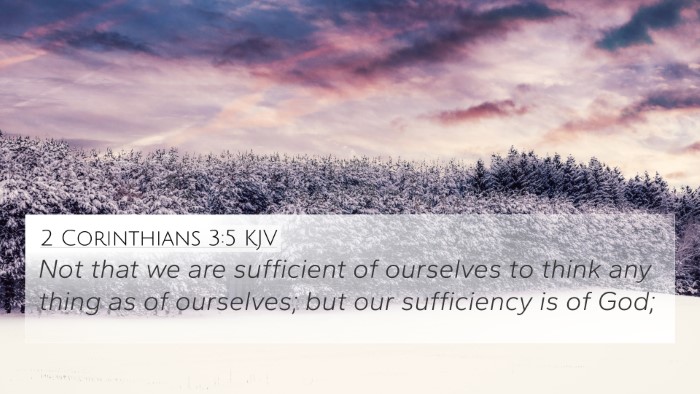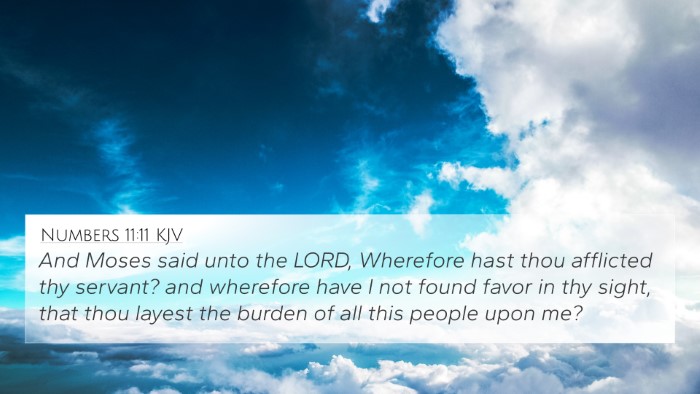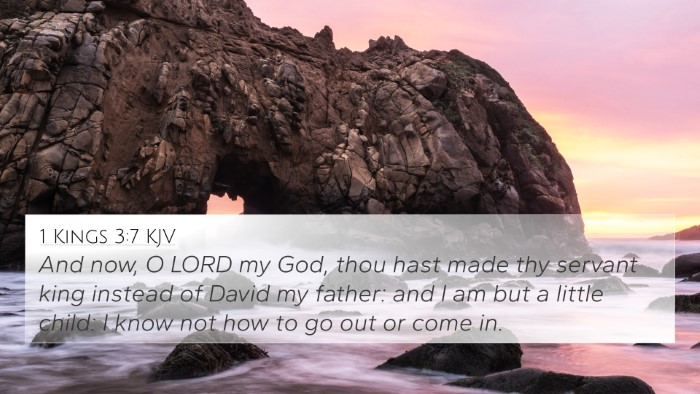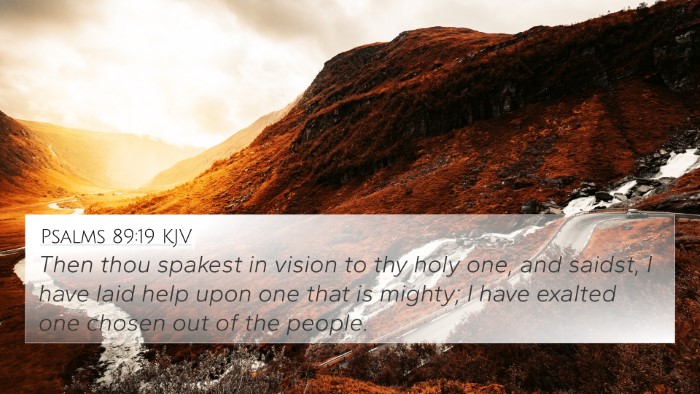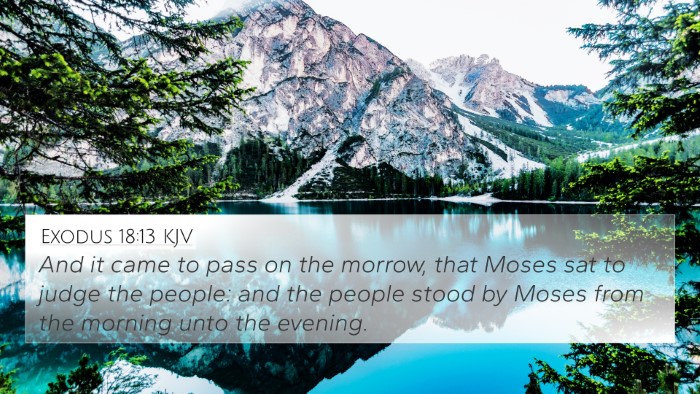Meaning and Interpretation of Deuteronomy 1:12
Verse: Deuteronomy 1:12 states, "How can I bear by myself the weight and burden of you and your strife?”
Contextual Background
This verse reflects a moment in the life of Moses as he leads the Israelite people. Faced with the challenges of leadership, he expresses the difficulty he encounters in bearing the burdens of the community alone.
Insights from Commentaries
-
Matthew Henry: Henry comments on Moses’ plea as a relatable expression of human limitation in leadership. He highlights that burden-bearing is a communal responsibility, and even the most capable leader requires support from others to navigate challenging times and disputes effectively.
-
Albert Barnes: Barnes focuses on the interplay of leadership and the need for assistance. In referencing the numerous issues Moses faces from the people, he suggests that such strife requires not just a singular leader but collaborative engagement among all members of the community.
-
Adam Clarke: Clarke elaborates on the emotional and spiritual toll of leadership. He posits that Moses’ heartfelt cry signifies the immense pressure placed on leaders and the necessity of divine guidance and the community's unity in bearing spiritual and practical burdens.
Thematic Connections and Cross-References
The verse resonates with various themes throughout the Bible, revealing the dynamic between divine leadership and communal responsibility. Below are several relevant Bible cross-references:
- Exodus 18:17-23: Here, Jethro advises Moses to delegate responsibilities to others, emphasizing the importance of shared leadership.
- Galatians 6:2: This New Testament verse prompts believers to "bear one another's burdens," echoing the communal aspect of burden-bearing.
- Philippians 4:2-3: Paul encourages unity among believers, highlighting the need for resolving conflicts and sharing burdens within the church.
- 1 Corinthians 12:12-27: The analogy of the body of Christ illustrates that every member has a role in supporting one another, similar to Moses needing help with the weight of leadership.
- James 5:16: Encouragement for believers to confess sins and pray for one another reinforces the concept of mutual support in the Christian faith.
- Matthew 11:28-30: Jesus invites those who are weary to find rest in Him, mirroring the spiritual and emotional burdens expressed by Moses.
- Romans 12:4-5: This passage underlines the idea of belonging to one body with many members, emphasizing collective responsibility.
- 1 Thessalonians 5:14: Encouragement to help the weak and be patient with all points to the communal nature of support and care.
- Acts 6:1-4: This early church scenario shows how the apostles delegated tasks to focus on prayer and ministry of the word, highlighting the importance of sharing the load.
- Matthew 5:14: The collective identity of believers as "the light of the world" calls for shared witness and communal engagement in the Kingdom work.
Practical Application
Understanding this verse and its implications encourages us to reflect on our roles within our communities. As believers, we are tasked not merely with our individual burdens but are called to support one another in our journeys. This theme is prominent in the Bible and forms the foundation for many interpersonal and communal structures found within the scripture.
Conclusion
Deuteronomy 1:12 serves as a poignant reminder of the weight of leadership and the necessity of community support. It calls us to embrace both our responsibilities and the willingness to share burdens with others, fostering a spirit of unity and cooperation.
Further Study and Tools for Cross-Referencing
To delve deeper into these themes and discover more connections between scripture, consider utilizing tools for Bible cross-referencing such as:
- Bible concordance
- Bible cross-reference guide
- Cross-reference Bible study methods
- Bible reference resources
- Comprehensive Bible cross-reference materials
By identifying connections between Old and New Testament verses, we can develop a richer understanding of the scriptures and their interconnectedness, a vital aspect of effective biblical interpretation and study.



